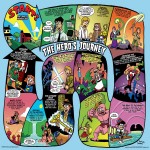 When you’ve seen as many movies as I have, you begin to see that they all follow a certain pattern. This is true not just of movies, but of all great stories ranging from those found in classic mythology and literature to modern TV series and video games. Joseph Campbell called it the monomyth or hero’s journey. It’s basically a series of steps that the protagonist must go through during the course of his or her adventure. In addition to this, there are also a number of spiritual principles that often find their way into storytelling. By combining these principles with the monomyth, you can pretty much figure out where just about any story is headed. While this skill has proven to be incredibly annoying to my wife, it’s come in very handy for me. Not because I’ve continually annoyed her with my usually correct movie and TV show predictions, but because I’ve noticed that these storytelling rules apply to more than just fictitious stories. They also apply to real life.
When you’ve seen as many movies as I have, you begin to see that they all follow a certain pattern. This is true not just of movies, but of all great stories ranging from those found in classic mythology and literature to modern TV series and video games. Joseph Campbell called it the monomyth or hero’s journey. It’s basically a series of steps that the protagonist must go through during the course of his or her adventure. In addition to this, there are also a number of spiritual principles that often find their way into storytelling. By combining these principles with the monomyth, you can pretty much figure out where just about any story is headed. While this skill has proven to be incredibly annoying to my wife, it’s come in very handy for me. Not because I’ve continually annoyed her with my usually correct movie and TV show predictions, but because I’ve noticed that these storytelling rules apply to more than just fictitious stories. They also apply to real life.
 For years leading up to 2012, spiritual-types who were sick of the way the world was heading could take comfort in the promise of a new era that was predicted to begin on December 21 of that year. The Mayans, known for their astronomical expertise had supposedly predicted it. In addition, St. Malachy’s famous Prophecy of the Popes, which predicts when the world as we know it would end, also correlates to about the same time period. The Hopi tribe, Edgar Cayce, a book attributed to Nostradamus, hell, even The History Channel’s countless specials all pointed towards 12/21/12 as the beginning of the end times. The details differed, but whether you believed that Earth was due for a major cataclysm, a spiritual awakening, a religious reckoning and rapture, an alien visitation, a new dimension, or just an enlightened age, most people seemed somewhat excited that a major event was on the horizon. When the day finally arrived, we instead got something that came as a shock to many: absolutely nothing. Or so it would seem.
For years leading up to 2012, spiritual-types who were sick of the way the world was heading could take comfort in the promise of a new era that was predicted to begin on December 21 of that year. The Mayans, known for their astronomical expertise had supposedly predicted it. In addition, St. Malachy’s famous Prophecy of the Popes, which predicts when the world as we know it would end, also correlates to about the same time period. The Hopi tribe, Edgar Cayce, a book attributed to Nostradamus, hell, even The History Channel’s countless specials all pointed towards 12/21/12 as the beginning of the end times. The details differed, but whether you believed that Earth was due for a major cataclysm, a spiritual awakening, a religious reckoning and rapture, an alien visitation, a new dimension, or just an enlightened age, most people seemed somewhat excited that a major event was on the horizon. When the day finally arrived, we instead got something that came as a shock to many: absolutely nothing. Or so it would seem.

I’m very excited about a new app coming out that is completely ahead of its time. It’s called GoogleFuture and it’s amazing. Applying the process of quantum computing, the app enables you to Google search anything, from any time period—including the future. And not just the future of your current timeline, but any possible future. Imagine being able to do a search on yourself to see what becomes of you based on certain choices and decisions—which job brought more success, which partner brought a more lasting relationship, which path brought the most fulfillment. With GoogleFuture there will be no more uncertainty, and really, no need for this article. Truth be told however, there actually are no plans for GoogleFuture, or anything similar, anytime soon as far as I know. But being able to figure out your destiny is really just as easy. Maybe, even easier.
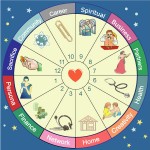 Supposedly, nobody ever said life was fair. Well, I’m saying it right now. Maybe I’m a nobody so the adage still works but I’ve come to believe that life is absolutely fair. Yes, there are selfish jerks who seem to be rewarded while truly good, hardworking, selfless people seem to be punished. There are people who’ve lived like there’s no tomorrow that live long, healthy lives while people who ate healthy, exercised and did everything right have died young. There are innocent children who suffer with terminal illness while evil dictators enjoy the good life. So how is it that I can possibly believe that life is fair? Because most people only see life on a superficial level, but it’s time that we dig a little deeper.
Supposedly, nobody ever said life was fair. Well, I’m saying it right now. Maybe I’m a nobody so the adage still works but I’ve come to believe that life is absolutely fair. Yes, there are selfish jerks who seem to be rewarded while truly good, hardworking, selfless people seem to be punished. There are people who’ve lived like there’s no tomorrow that live long, healthy lives while people who ate healthy, exercised and did everything right have died young. There are innocent children who suffer with terminal illness while evil dictators enjoy the good life. So how is it that I can possibly believe that life is fair? Because most people only see life on a superficial level, but it’s time that we dig a little deeper.
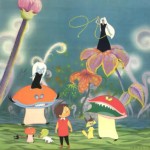 Have you ever tried to track down something you saw on TV as a kid, just to see if it was even real? Many of us are occasionally haunted by snippets of movies and shows we vaguely remember watching when we were children. We may wonder if these memories ever really happened, or if they were dreams. Especially when the memories seem incredibly bizarre! Having grown up in the 70s, I caught a LOT of psychedelic stuff on TV as a kid that I’ve become obsessed with tracking down as an adult. Why? Discovering forgotten moments from our youth is the closest thing we have to time travel. We get to relive an experience we had and to see what actually happened. Sometimes, we may even be shocked to find that the story from way back then provides an answer to our lives now.
Have you ever tried to track down something you saw on TV as a kid, just to see if it was even real? Many of us are occasionally haunted by snippets of movies and shows we vaguely remember watching when we were children. We may wonder if these memories ever really happened, or if they were dreams. Especially when the memories seem incredibly bizarre! Having grown up in the 70s, I caught a LOT of psychedelic stuff on TV as a kid that I’ve become obsessed with tracking down as an adult. Why? Discovering forgotten moments from our youth is the closest thing we have to time travel. We get to relive an experience we had and to see what actually happened. Sometimes, we may even be shocked to find that the story from way back then provides an answer to our lives now.
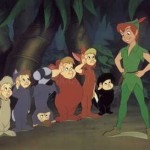 Disney taught us that, “when you wish upon a star, your dreams come true.” Unfortunately, if your dream is to have both of your parents live to see you succeed, you’re sheer out of luck. In fact, of Disney’s forty full-length animated features from 1937 until 2000, I know of only one where the protagonist’s parents remain alive for the entire film.* Then there’s the fact that just about every super-powered hero is an orphan. If this isn’t bad enough, one or both of the hero’s adoptive parents often dies too! Superman lost his adoptive dad, Spider-Man lost his uncle, and Luke Skywalker lost both his aunt and uncle. With the Amazing Spider-Man movie set for release this summer, and that movie actually exploring the mysterious back-story about Peter Parker’s real parents, I thought it would be a good time to delve into the topic of why so many of our heroes—both super and animated—are orphans, and what the message means for all of us.
Disney taught us that, “when you wish upon a star, your dreams come true.” Unfortunately, if your dream is to have both of your parents live to see you succeed, you’re sheer out of luck. In fact, of Disney’s forty full-length animated features from 1937 until 2000, I know of only one where the protagonist’s parents remain alive for the entire film.* Then there’s the fact that just about every super-powered hero is an orphan. If this isn’t bad enough, one or both of the hero’s adoptive parents often dies too! Superman lost his adoptive dad, Spider-Man lost his uncle, and Luke Skywalker lost both his aunt and uncle. With the Amazing Spider-Man movie set for release this summer, and that movie actually exploring the mysterious back-story about Peter Parker’s real parents, I thought it would be a good time to delve into the topic of why so many of our heroes—both super and animated—are orphans, and what the message means for all of us.
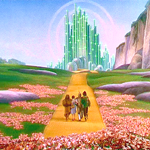 In a New York Press article from August, 2011, film producer and director Tommy Pallotta, said, “I am a fan of audience participation, but I also think audiences like to be told a story. There’s this thing video game designers call a ‘golden path’—there’s a definite way that the majority of people are going to experience the game, and the designers plot that. A lot of the interactivity in a video game is really just the illusion of interactivity. It’s about engaging the audience and giving at least the feeling of volition. But as the artist you have the sense that you are, in some way, controlling it, blending the craft of storytelling with the illusion of agency.” In other words, in a game you think you are controlling the action, but really it’s already been pre-programmed. Kind of like what we think of as destiny. In fact, maybe that’s exactly what destiny is: the path we are meant to take in order to have the most fulfilling experience.
In a New York Press article from August, 2011, film producer and director Tommy Pallotta, said, “I am a fan of audience participation, but I also think audiences like to be told a story. There’s this thing video game designers call a ‘golden path’—there’s a definite way that the majority of people are going to experience the game, and the designers plot that. A lot of the interactivity in a video game is really just the illusion of interactivity. It’s about engaging the audience and giving at least the feeling of volition. But as the artist you have the sense that you are, in some way, controlling it, blending the craft of storytelling with the illusion of agency.” In other words, in a game you think you are controlling the action, but really it’s already been pre-programmed. Kind of like what we think of as destiny. In fact, maybe that’s exactly what destiny is: the path we are meant to take in order to have the most fulfilling experience.
 We are living through some pretty dark times. The economy continues to be horrendous with the middle class going through the toughest challenges it’s ever had to face. To make matters worse, natural disasters are becoming more powerful and frequent than ever before, the uprisings in the Middle East are bringing unprecedented instability to the region, and if these “end of days” scenarios weren’t enough, the Maya, Nostradamus, and others all actually predicted the end of the world in 2012. It’s not like this is anything you haven’t heard on the media or from others dozens of times before. The funny thing? None of it’s true. Lately, we’ve been hearing and accepting dozens of statistics like these without question. It’s a sinfully delicious dessert the entire world seems to be stuffing themselves with: the chocolate cake of negativity.
We are living through some pretty dark times. The economy continues to be horrendous with the middle class going through the toughest challenges it’s ever had to face. To make matters worse, natural disasters are becoming more powerful and frequent than ever before, the uprisings in the Middle East are bringing unprecedented instability to the region, and if these “end of days” scenarios weren’t enough, the Maya, Nostradamus, and others all actually predicted the end of the world in 2012. It’s not like this is anything you haven’t heard on the media or from others dozens of times before. The funny thing? None of it’s true. Lately, we’ve been hearing and accepting dozens of statistics like these without question. It’s a sinfully delicious dessert the entire world seems to be stuffing themselves with: the chocolate cake of negativity.
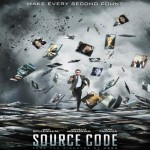 As mentioned in last quarter’s column, there have been a lot of “life-as-illusion” themed movies coming out lately. While I suspect that the success of Avatar and Lost are partly responsible for this trend, I think people’s fascination with 2012, drastic world changes, and a surge in our search for meaning are also fueling the recent string of films about alternate realities and simulated worlds. When airplanes are crashing into buildings, cities are submerged underwater, the Middle East is revolting, and the world economy is collapsing, real life almost seems more fantastical than our dreams. Jon Stewart summed it up perfectly at the 2008 Academy Awards: “Normally, when you see a black man or a woman president, an asteroid is about to hit the Statue of Liberty.” Yes, we are now officially living in the future, and we all know what kind of stuff happens in the future—exactly the kind of stuff that’s happening right now. But at least, thanks to Hollywood, we’ve been warned. And Hollywood’s heads up may even go much deeper than prophesies of events to come. They may help explain the reality we all find ourselves in.
As mentioned in last quarter’s column, there have been a lot of “life-as-illusion” themed movies coming out lately. While I suspect that the success of Avatar and Lost are partly responsible for this trend, I think people’s fascination with 2012, drastic world changes, and a surge in our search for meaning are also fueling the recent string of films about alternate realities and simulated worlds. When airplanes are crashing into buildings, cities are submerged underwater, the Middle East is revolting, and the world economy is collapsing, real life almost seems more fantastical than our dreams. Jon Stewart summed it up perfectly at the 2008 Academy Awards: “Normally, when you see a black man or a woman president, an asteroid is about to hit the Statue of Liberty.” Yes, we are now officially living in the future, and we all know what kind of stuff happens in the future—exactly the kind of stuff that’s happening right now. But at least, thanks to Hollywood, we’ve been warned. And Hollywood’s heads up may even go much deeper than prophesies of events to come. They may help explain the reality we all find ourselves in.
 There have been a lot of “life-as-illusion” themed movies coming out lately. We’ve had Avatar, Inception, and TRON: Legacy, and this month alone there’s The Adjustment Bureau, Limitless, Sucker Punch and Source Code. All these films share themes of alternate realities, questions about what is reality, and insight into powers that might be manipulating the reality we live in. While I hope to discuss the most recent batch of these films in an upcoming column, for now I’d like to bring up one that slipped past the radar of many moviegoers. This film actually gave me goose bumps when it revealed an angle that I’ve only recently adopted, and have never before seen in any other movie. That film is Disney’s Tangled.
There have been a lot of “life-as-illusion” themed movies coming out lately. We’ve had Avatar, Inception, and TRON: Legacy, and this month alone there’s The Adjustment Bureau, Limitless, Sucker Punch and Source Code. All these films share themes of alternate realities, questions about what is reality, and insight into powers that might be manipulating the reality we live in. While I hope to discuss the most recent batch of these films in an upcoming column, for now I’d like to bring up one that slipped past the radar of many moviegoers. This film actually gave me goose bumps when it revealed an angle that I’ve only recently adopted, and have never before seen in any other movie. That film is Disney’s Tangled.
 When you’ve seen as many movies as I have, you begin to see that they all follow a certain pattern. This is true not just of movies, but of all great stories ranging from those found in classic mythology and literature to modern TV series and video games. Joseph Campbell called it the monomyth or hero’s journey. It’s basically a series of steps that the protagonist must go through during the course of his or her adventure. In addition to this, there are also a number of spiritual principles that often find their way into storytelling. By combining these principles with the monomyth, you can pretty much figure out where just about any story is headed. While this skill has proven to be incredibly annoying to my wife, it’s come in very handy for me. Not because I’ve continually annoyed her with my usually correct movie and TV show predictions, but because I’ve noticed that these storytelling rules apply to more than just fictitious stories. They also apply to real life.
When you’ve seen as many movies as I have, you begin to see that they all follow a certain pattern. This is true not just of movies, but of all great stories ranging from those found in classic mythology and literature to modern TV series and video games. Joseph Campbell called it the monomyth or hero’s journey. It’s basically a series of steps that the protagonist must go through during the course of his or her adventure. In addition to this, there are also a number of spiritual principles that often find their way into storytelling. By combining these principles with the monomyth, you can pretty much figure out where just about any story is headed. While this skill has proven to be incredibly annoying to my wife, it’s come in very handy for me. Not because I’ve continually annoyed her with my usually correct movie and TV show predictions, but because I’ve noticed that these storytelling rules apply to more than just fictitious stories. They also apply to real life.









